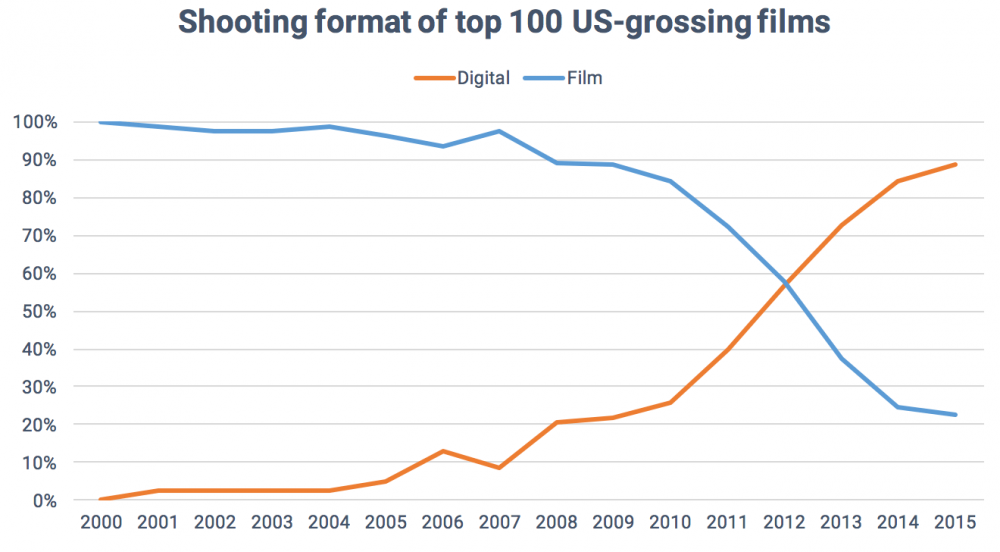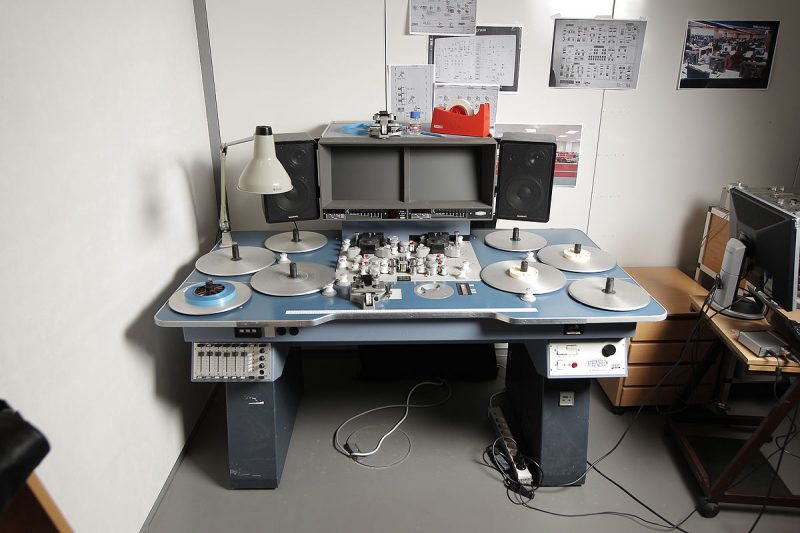Most Important Filmmaking Item – FREE Film School
In the last few weeks of Free Film School we’ve talked a lot about theoretical stuff. Like thinking like a filmmaker, developing a story for screen and storyboarding. In fact, storyboarding is your bridge between the theory of your story being a film and the practical process of actually making it.
Often, we get stuck in the theoretical phase of filmmaking. In other words, spending days, weeks and months thinking about the film we will one day make, at some indefinite point in time in the future.
As a side note, one of my first screenplays is called Not This Day. The script was optioned and had 2 years development. It’s about a guy whose alcoholic father turns up on his doorstep one morning, raging drunk. The son then has to deal with him as nobody else will have him. One main theme of the script was putting things off – like quitting drinking, or dealing with family issues. Hence the title…
Anyway, like alcoholics quitting the booze and sons dealing with painful family issues, making a film is quite a daunting task. Wherever you look or whoever you ask, there will be a different opinion on what you need to make a film. So let’s take a look at this big question:
What do we actually need to make a film?
Now, there’s cameras, lights, microphones, props and a seemingly endless list of “essential” equipment required. And uh… well, wait a second. It depends on what kind of film you want to make. Shooting a documentary, for example, is a different thing to shooting a science fiction thriller.
But for the sake of this article, let’s say we’re shooting a science fiction thriller. Now what do you think is the most important thing you need to make this film?
“A camera”, you say? Nope. I’ll tell you the most important item, so put this at the top of your kit list:
Time
Haha I know it’s not a physical item (Or is it? Cue haunting scifi melody)…
Anyway, films generally take up an awful lot of time to make. I know people who own top quality cameras who have never managed to shoot even a short film with it, in all the years they’ve owned one. When you ask them, they will tell you they haven’t had time yet.
Then they will run through a long list of life events which have prevented this epic film of their imagination from coming to fruition. Usually, every few months, this imagined film changes to another imagined film. “I decided to drop the musical about saving the rainforest. Now I’m working on a romantic comedy where everything takes place on Facebook…”
Even if you own the most expensive cinematic camera affordable, if you don’t have time to use it, it’s useless. But with time you can achieve… well I won’t say “anything”, because that’s not true… but you can achieve incredible things.
My science fiction thriller took me 3 years to make. I had almost no crew, a camcorder, one microphone and some lights that cost me under £100. But I gave myself time and I think I did ok with what I had.
So, go check in your kit bag and make sure you have some time to do this. Is it there? OK, then we’re good to go.
Talking of cameras, have you considered whether you would like to shoot on film or video? Films still are shot on film, plus films shot on film make up the majority of films ever made (still). If you are new to filmmaking, it’s helpful to understand the difference and why we have made the switch to digital (mostly).
Digital or Film?
Most likely, as a new film student, you will be shooting using a digital camera. Shooting on film is more costly and more risky, so it doesn’t make too much sense to learn filmmaking this way. Having said that, the first films I shot were on 8mm film and I was only 8 years old – so it can’t be that difficult!

These days, almost everyone starting out learning how to make a film will shoot with a digital camera. However, you can still shoot with film, if you really want to. You can pick up a second hand 8mm camera pretty cheaply these days. You might also think about shooting a 16mm or S16mm film using a 16mm camera.
And you don’t need to stop there. Commercial films do still get shot on 35mm, 65mm and 70mm film. But let’s just be clear – the cost of using those large sizes of film is almost certainly prohibitive for us poor film school students.
Added to that, when shooting with film, the process of filmmaking not only becomes more expensive, but also somewhat more complicated.
Shooting on Film
You’ll need to buy or hire a film camera. They are usually heavier and a little more complicated to use than digital ones (depending on the camera).
You’ll also need film stock. Now, film stock does not last forever so you have to buy or acquire just the right amount you need to complete your film.
Any unused film stock needs to be stored in a cool place so it lasts longer. There was an old joke about indie filmmakers in the past, where you would go to their fridge to get a drink and find it full of cans of film stock.
When shooting, the film needs to be exposed correctly. Then it needs to be processed correctly in a lab. You won’t know if it’s ok until you get the film back from the lab. So, fingers crossed!
If you managed to shoot well exposed film and it was processed correctly, congratulations! Now you need to cut the physical film together. In the past, to edit physical film you needed access to one of these:

But nowadays, the processed film is converted to a digital format first. Then the film is edited digitally. This is then used to create a physical copy of the edit.
So you can see this process is much more complicated than digital.
As you can image, when working with little funds, this hazardous procedure can be the death of many many film projects. In the last century, if you managed to shoot a feature length film self-funded your project would make the news. Because when shooting with film, the likelihood of completing a 90 minute project unfunded was pretty small.
So the question is, in an age where shooting is far easier, why give yourself old mountains to climb? Well, perhaps because shooting a successful feature using film self funded might make the news now? Because of the romance of shooting film and the quality of the image?
Shooting Digital
Now, shooting with a digital camera can be complicated too. However, there are some elements of shooting with film that you just can’t avoid, as listed above. Whereas when shooting with a digital camera, it’s possible to reduce the process to a few simple steps, all of which can be accomplished by yourself and some affordable kit.
A digital camera does not need film stock. When shooting with a digital camera, each shot is saved as a digital file. You will probably need somewhere to store your video, like an external hard drive.
The video file can then be transferred to your laptop or computer. You will need some digital editing software to cut the video files together into a finished film. This same software is used to master the film into one master file.
This means essentially you need a digital camera and a computer with editing software. Your entire film could be made with those 2 pieces of equipment. And you can keep shooting until eternity without ever running out of film (if you keep deleting files to make space).
FREE film School Exercise
I lost count of what week we’re at, but anyway – this week is about visualising your film’s production. Yes, you need to get up out of your director’s chair and shuffle over to the producer’s chair.
In the last weeks, you’ve been working on a story idea and developing it. Hopefully, you’ve had one eye on the practicality of filming it. But this week you’ll need both eyes.
What’s the cheapest camera you can film this with? Remember, even professionals shoot with smartphones.
Can you afford some audio kit? If so, how much?
Do you know someone who can record the audio for you? Do you even need audio (if there’s no dialogue then you can get away without dedicated audio kit and crew)? Know anyone who’s willing to play the characters in your story? They don’t have to be trained actors, just enthusiastic and up for the task. Do you have access to the locations in your story?
All these things are a bit daunting, aren’t they? But don’t panic…
You have time.
As I said above, what you really need is time. So give yourself the time now to go through the list above. It might take days, weeks or months to find all these things you need. And that is something you cannot avoid as a filmmaker.
But if you put your mind to it, you will work out how to find all these things. You can also be creative with your story to make it work with what you have.
This isn’t just low budget filmmaking. ALL filmmakers have to do this. No matter what budget you have, as a filmmaker production and pre-production are both basically a long list of “how” questions to be solved.
Examples:
How will we make this room look like a teenager’s bedroom?
How will we shoot this overhead angle?
As a filmmaker, you never stop asking “how” until someone shouts “that’s a wrap!” at the end of the final day of shooting.
Therefore, for this Free Film School lesson it’s time for you to start asking those how questions about your own film. And, to avoid becoming one of those eternal Not This Day filmmakers, you need solutions. If you keep coming up with reasons why it can’t be done, that is the very opposite of what a filmmaker is.
The word filmmaker has the word maker in it for a reason.
Eager to learn more?
Join our weekly newsletter featuring inspiring stories, no-budget filmmaking tips and comprehensive equipment reviews to help you turn your film projects into reality!
Simon Horrocks
Simon Horrocks is a screenwriter & filmmaker. His debut feature THIRD CONTACT was shot on a consumer camcorder and premiered at the BFI IMAX in 2013. His shot-on-smartphones sci-fi series SILENT EYE featured on Amazon Prime. He now runs a popular Patreon page which offers online courses for beginners, customised tips and more: www.patreon.com/SilentEye

